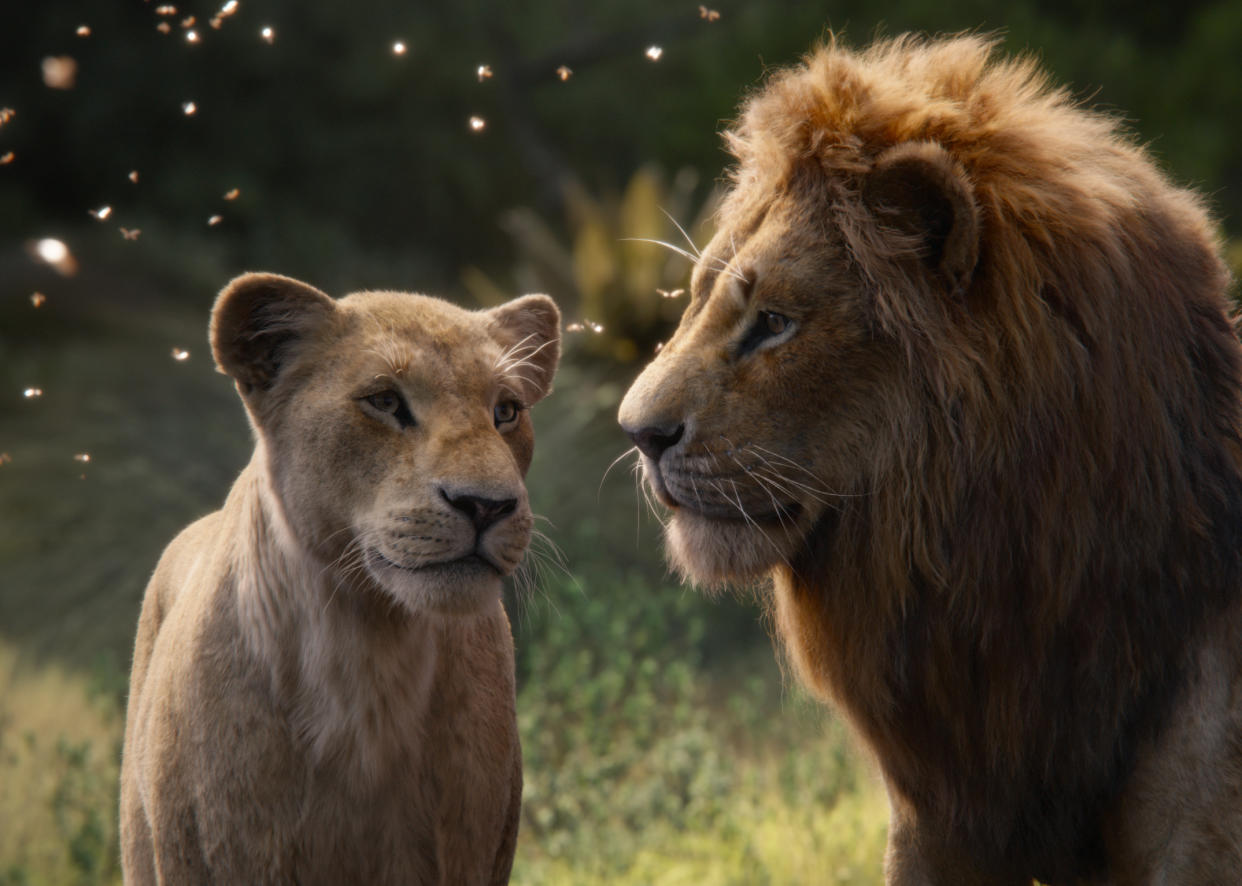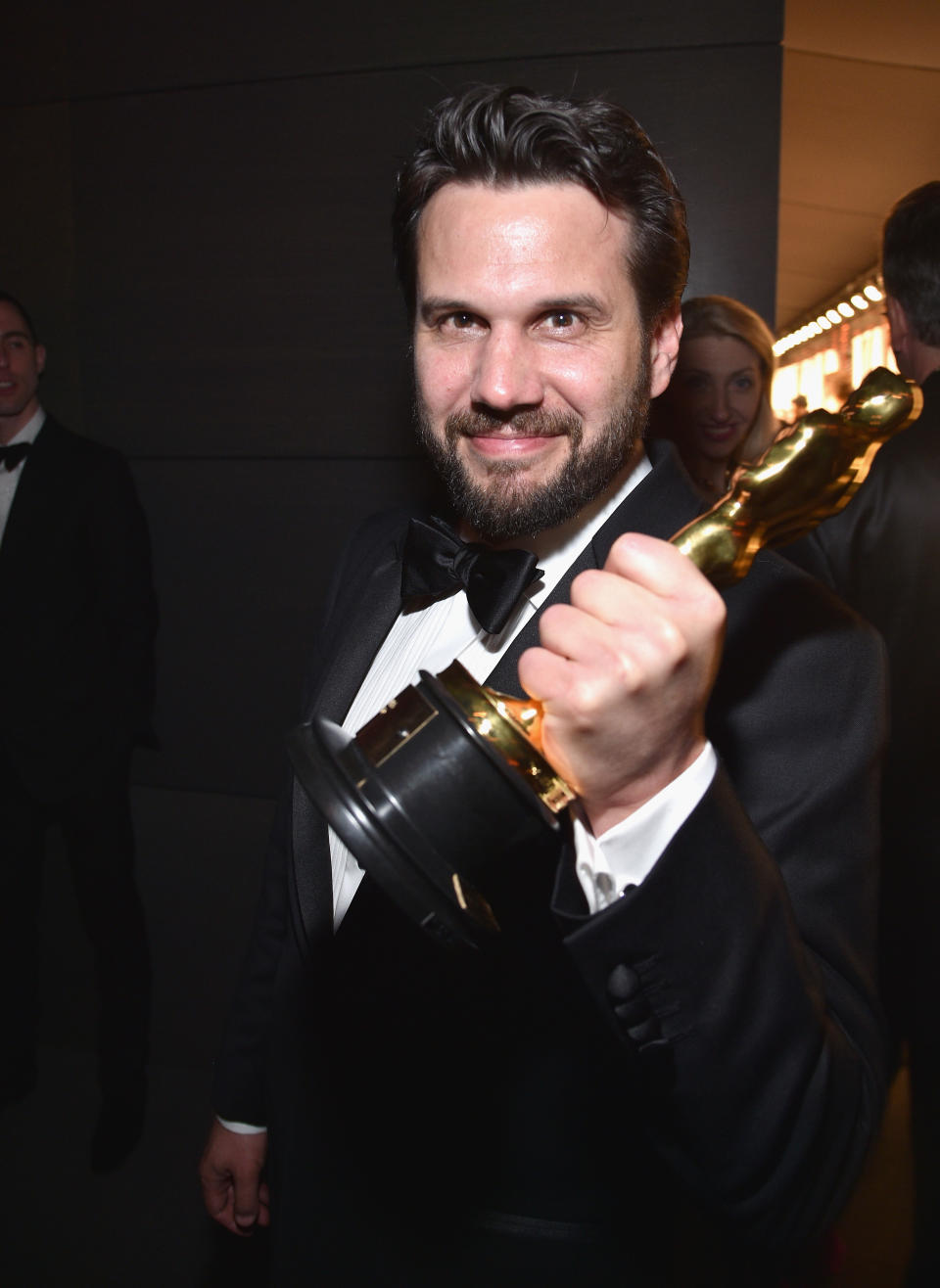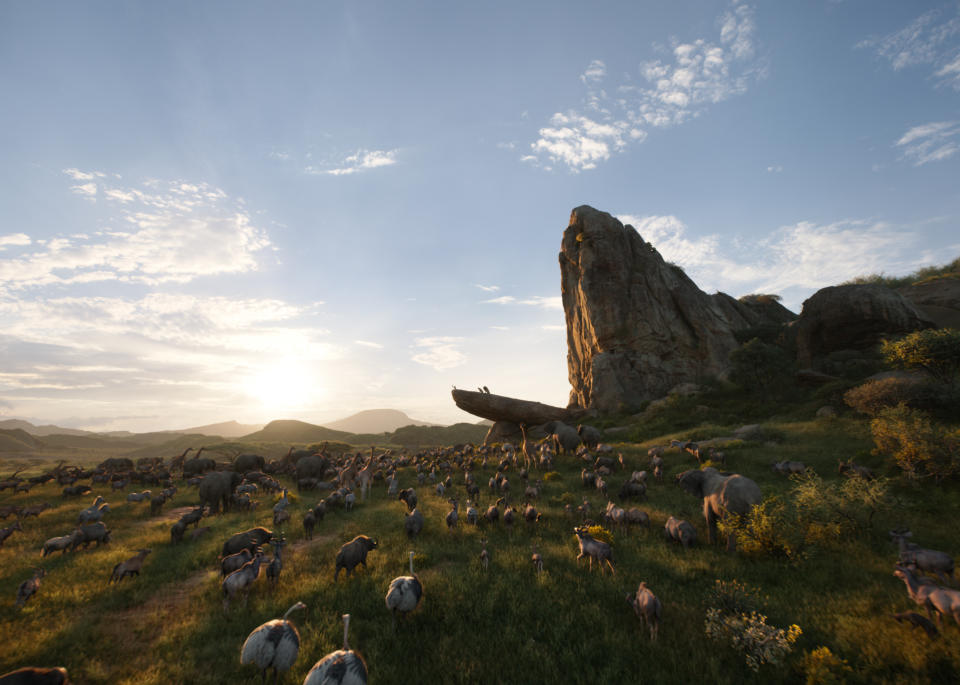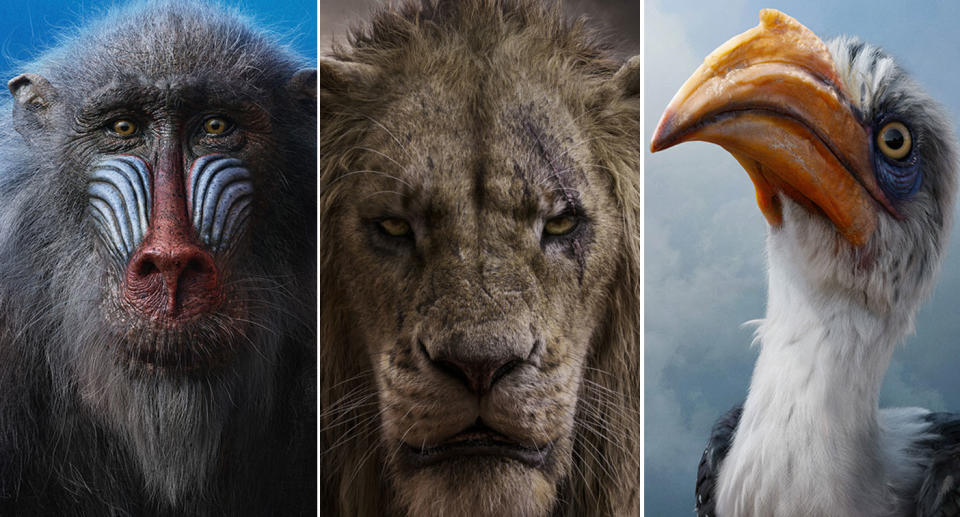Is 'The Lion King' live action or animation? Its VFX supervisor has his say

If you were one of the thousands who flocked to the cinema this weekend to see Disney’s new remake of The Lion King - propelling it to the top of the UK and Irish box offices, making it the second-highest opening of the year - then you’re probably wondering how it was made.
The African plains and its many creatures all looked real and live action, but animals obviously can’t sing, and if it’s not being touted as an animation, or a performance capture film like Avatar, where does it fall in the grand scheme of things?
“Ultimately, it's an animated film,” Adam Valdez, the film’s VFX supervisor at MPC, tells Yahoo Movies UK.
“But we approached it differently by building a bridge to live action filmmakers, so they can be intimately involved with [the animation].”
Press notes for the Jon Favreau-directed film call it an “all-new medium” that blends “live-action techniques with virtual reality tools and photoreal digital imagery”.
But it’s the finished product that differentiates it from a traditional animation, explains Valdez, who worked on the film alongside fellow VFX supervisor Elliot Newman.
“I think it's the visual aesthetic [of it] looking real, [and] made by live action filmmakers [that sets it apart]. So they are [the filmmakers’] choices all over the film in terms of camera and light and staging and production design, and the whole tone and experience of watching it. You want it to feel like you just sort of melt into it.
“You're not thinking about ‘I'm watching something created.’ I'm watching something that feels like life. And that's what makes it one of the reasons to make the film in the first place. To offer something new.”
Everything you see on screen in The Lion King, from the blades of grass to the clouds in the sky, and all the creatures in-between, was created inside computers by London-based VFX house MPC (Moving Picture Company) across three locations in Soho, Bangalore, and Los Angeles, bar one shot which remains - for now - a mystery.
Read more: This Lion King theory may ruin the film for you
“Jon Favreau said - openly now - there's one shot in the movie which was real photography,” Valdez says. “And I think it's up to him - when he wants to - reveal which one it is. But everything you see was created. Aside from that one shot - there's no other photography in there.”

The first step for MPC on making The Lion King was building a virtual savanna for director Favreau to shoot in. Then the animators created performances for the lions, putting them into a virtual environment, blocking out their movements throughout the scenes.
Then, using virtual reality headsets and video game technology, Favreau was able to jump into the film and position the cameras to suit his vision.
“You can imagine that a bunch of people are in a room together, and some of them are at computers, and some of them have headsets on. And they are playing a game of sorts together,” explains Valdez.
“But instead of running around with guns, they're holding cameras. What you're holding is either some virtual reality handsets, or you might be moving an actual dolly or a crane. And we're capturing the movement of the crane, we're feeding it into the game.

“So if the crane goes up our camera in the game goes up, just like you would see in a video game. You know, if your character goes up, and the camera follows you it's very similar technology.
Read more: Are Deepfakes the future of VFX?
“And we're recording what they do with those cameras. And they're seeing performances of lions moving through the savanna that we created.
“So then we bring that back here to our studio in London, and we go shot by shot and we recreate every piece of detail on the savannah - every great blade of grass and dead leaf on the floor, and the bushes and the trees and everything all the way to the horizon.”
Click the image below to see Lion King’s characters in detail...
Valdez won the Academy Award for Best Visual Effects in 2017 for his work on Favreau’s previous Disney remake The Jungle Book. But as for whether The Lion King should compete for Best Animation or Best Visual Effects at next year’s Oscars, MPC’s VFX supervisor retains a ‘Hakuna Matata’ attitude.
“I try to tune the awards thing out of my mind at all times. The fact that these are categories at all is a little silly these days, given the flux of how things are created.
“I'm not lying when I say I honestly just hope the movie works for people. But I think it's fascinating that even the public, or at least the internet layer of our society, is kind of interested in [the question of] what do you call these things?
“Because, clearly, entertainment is changing and how we consume it, how we relate to it. And what we accept from different genres and forms is very plastic right now.
“I think that's actually just ultimately exciting for what audiences are willing and ready to engage with.”
The Lion King is in cinemas now. Watch our interview with star Chiwetel Ejiofor below.

 Yahoo Movies
Yahoo Movies 


